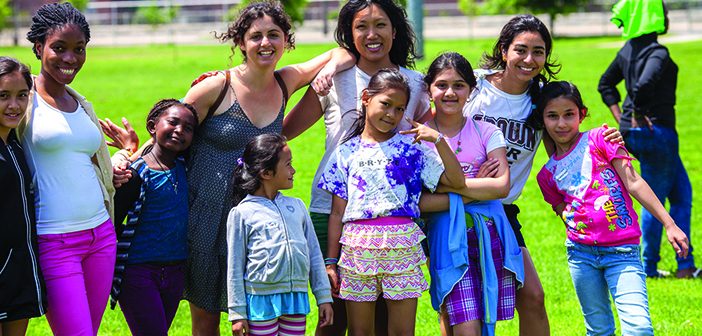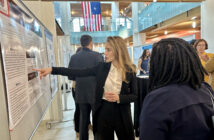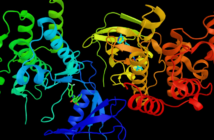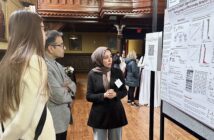A refugee tutoring organization partners with the Medical School to keep kids healthy.
Last year 292 refugees were settled in Providence, nearly half of them children. Many came from countries embroiled in deep conflict, such as the Democratic Republic of Congo and Syria; speak very little English; and lack access to basic needs like health care and education.
For 10 years, Brown undergraduates and medical students have been helping refugee kids make a home in Rhode Island. Brown Refugee Youth Tutoring and Enrichment, or BRYTE, pairs volunteers with children ages 6 to 18 to tutor them in English. This year is the organization’s biggest yet, with more than 160 kids enrolled.
Warren Alpert Medical School has granted BRYTE more than $10,000 over the years, including two grants that “help us examine students’ well-being and if they were emotionally and mentally ready to enter school,” tutor and leadership coordinator Julia Chang ’18 MD’22 says.
In January, that support was formalized when the organization moved from the Swearer Center for Public Service on the main campus to the Medical School.
“The move makes sense,” says VyVy Trinh ’11 MD’17, a long-time BRYTE volunteer and former director of its summer camp. She says Allan R. Tunkel, MD, PhD, associate dean of medical education, was particularly receptive to the move.
“He said, ‘This fits in with what we do here,’” Trinh says. “Community-based work contributes to the health of this population, which makes the program so perfect for the Medical School.”
Because BRYTE volunteers go to mentees’ homes, their work often goes beyond language and cultural education. “As a tutor working in the home, you’re lucky enough to be privy to a lot of information that doesn’t come up in a school setting,” Chang says. “This means along with academic tutoring, we also help our students navigate the health care system here, among other things.”
Trinh says the Medical School setting will further strengthen the program’s link between health and education. Studies show that less education is associated with earlier onset of chronic disease, disability, and declining functional status. Other health impacts of education relate to occupational status, income, neighborhood, and wealth.
“Health is interconnected with everything. For refugee children in particular, school is one of the biggest factors of their well-being,” says Carol Lewis, MD RES’83, clinical associate professor of pediatrics. She’s the director of the Refugee Health Clinic at Hasbro Children’s Hospital and a BRYTE faculty adviser.
“Troubles in school will often have a physical presentation, for example. In this way, physicians can serve as broader advocates for their patients beyond just the 20-minute visit we have with them,” Lewis says. “Medicine is not just about fixing a bump, it’s about wellness. For [children]to be well, they need to know they’re doing well in school.”
Many BRYTE volunteers develop close relationships with the refugees they tutor, further helping them excel in school and their new community. The volunteers benefit, too. Chang says of her mentee: “I started working with her when I was a freshman in college and she was a freshman in high school. We’re planning to graduate together.”




